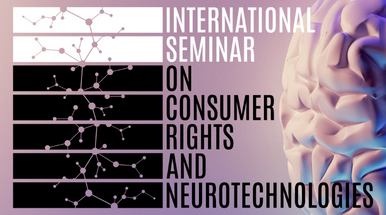
Seminar organized by the Department of Business and Law Di.SEA.DE
10th June 2022 15.00 (CET) | 09.00 (ET)
U7 Building - CIVITAS Via Bicocca degli Arcimboldi 8 20126 Milano | Aula Consiglio, 4th floor
"LIFTiD is a great device for those interested in transcranial direct current stimulation (TDCs) for improving focus, attention, and productivity!".
"(...)The company's main product line is the Focus series, which offers wearable headbands for education, fitness, and mind-controlled games".
"(...)if the FDA approves Flow's headset for commercial sale in the US, it will become the first tDCS product for the treatment of depression without a prescription or the supervision of a doctor".
As futuristic as these claims may seem, they have been taken from a recent article listing both products already available on the market and products that will shortly be.
This seminar, which will be held on the 10th of June, takes on from the International Workshop on the risks and challenges of neurotechnology for human rights, organized by this scientific committee on the 23th and 24th of November 2021. This first meeting, besides highlighting the risks of neurotechnologies for human rights, has also evidenced their great potential to help cure mental illnesses and neurological disorders such as Parkinson's, Alzheimer's, or depression.
But what happens when these methods to record, interpret or alter brain activity leave the medical arena, ruled by rigorous bioethical standards and norms, and becomes a consumer-available product? What are the risks for consumers' rights when resorting to neurotechnology for non-medical purposes (increased concentration, memory, enhancement)? And what is the applicable legal framework to prevent and mitigate the effects of this impact?
This seminar aims to examine how fit international, European (GDPR) and American legal frameworks are to address the problems deriving from the emergence of a new consumer: a consumer who operates in a global market in which he/she can acquire, without medical supervision, neurotechnological products with the capacity to intervene directly in a specific brain area for enhancement purposes. This neurotechnology devices give the consumer access to his/her brain-data, hence opening the door to its possible use (through algorithms) and to its modification.
The theoretical discussion will be enriched with the perspectives from professionals working in the design of the neurotechnology products and on the software that behind it.